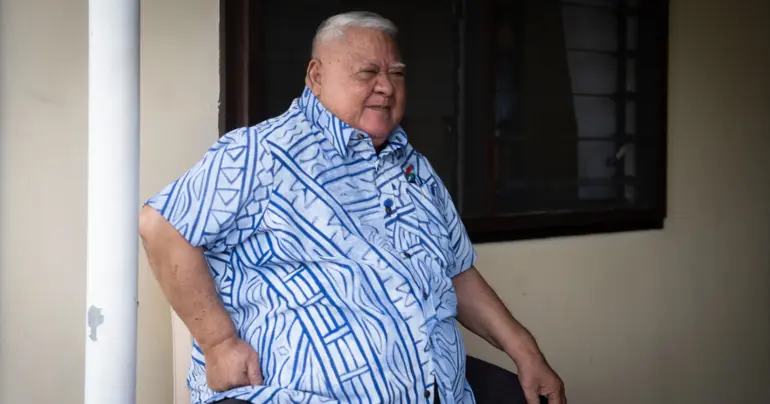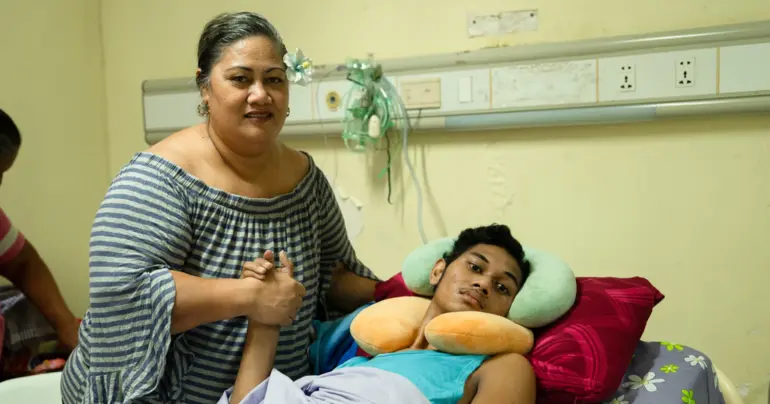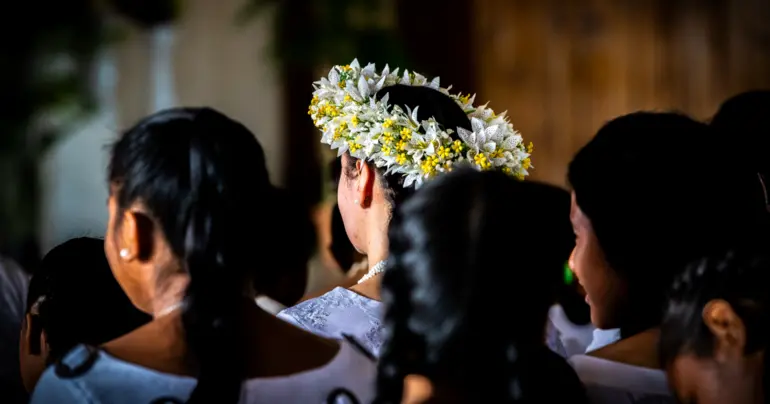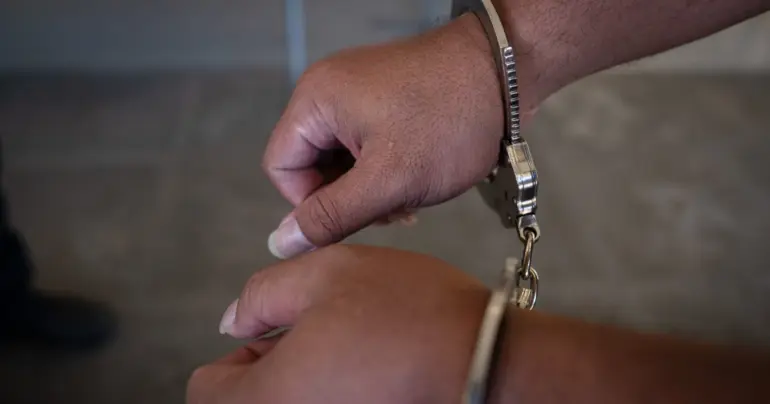Samoa urges U.S. to commit to nuclear-free Pacific
Samoa’s former Ambassador to the United Nations, Ali’ioaiga Feturi Elisaia, has called on the United States to ratify a treaty declaring the South Pacific a Nuclear free zone.
The South Pacific Nuclear-Free Zone Treaty of Rarotonga has been signed by Samoa and is also referred to as the Rarotonga Treaty. The regional pact establishing the Pacific as a nuclear-weapons-free zone was first signed 33 years ago. But conspicuously absent from the countries to give the treaty legal effect is the America
Russia, which along with America holds an estimated 90 per cent of the world’s nuclear stockpile, has ratified the first two versions of the treaty but not the third. The United States is yet to ratify any version of the treaty.
Ali’ioaiga, who is currently Samoa's High Commissioner to Fiji, made the comments during an online Blue Pacific Talanoa online meeting to mark the International Day against Nuclear testing last Friday. He was part of an expert panel that also included Fiji’s Prime Minister Josaia Bainimarama and Pacific Islands Forum Secretary-General Henry Puma.
"Every journey has four distinct features. A point of reference, a starting line, sign posts, and a final destination,” Ali'ioaiga said.
“My point of reference for the Rarotonga Treaty was the establishment of the Pacific Islands Forum as a separate entity from the South Pacific Commission 50 years ago in August 1971.
"It was significant because it provided space for Pacific Leaders to discuss peace and security and political issues freely, which they couldn’t do within the South Pacific Commission because the metropolitan powers were present and some of the issues were sensitive and directly affected some of them."
Issues like independence, decolonization and nuclear testing became the Pacific Forum’s DNA, he said.
Ali'ioaiga then credited the Pacific Islands Forum for playing a critical role in the formulation of the treaty.
"I firmly believe that without the open and enabling environment that the Pacific Islands Forum offered, I doubt if the Rarotonga Treaty would ever become a reality, let alone discussed and considered,” he said.
“So that is the regional point-of-reference.
“My starting line was Tuvalu. I was a member of Samoa’s delegation at the Tuvalu Forum meeting in August 1984 where the decision was taken to appoint a working group of officials to prepare a draft of a Nuclear Free Zone Treaty for Leaders' consideration at their next meeting."
Looking back at the early days of the treaty’s formulation, Ali'ioaiga said Samoa was keen to be represented in the drafting team, and consequently became the country’s representative on the treaty’s drafting committee.
"I was not a nuclear scientist or an international lawyer – but Samoa was determined to have a seat at the drafting table to render legitimacy, inclusivity and ownership to our draft report. And the rest is history," Ali'ioaiga said.
"The draft text of the proposed Treaty was endorsed by our Leaders at their Forum meeting in Rarotonga and opened for signature in August 1985. It came into force in record time a year later."
Indicating that it was common knowledge that some Pacific island states were sites of nuclear testing at that time, Ali'ioaiga said said the scars of fear and mistrust – as a consequence of this experience as well as the impacted community’s vulnerability – gave the region a shared point-of-reference that shaped its perspective on nuclear disarmament.
"This helped unite us in our efforts to establish the Rarotonga Treaty," said Ali'ioaiga.
Using Tuvalu as a starting point, Ali'ioaiga said the first signpost was in 2005, which marked 20 years after the adoption of the Rarotonga Treaty.
In 2005, there was a “Conference of States Parties and Signatories to Treaties” that established Nuclear Weapon Free Zones at Tlatelolco in Mexico, which was the namesake of the 1st Nuclear Free Zone Treaty for Latin America and the Caribbean Region in 1967.
Samoa was Chair of the Pacific Islands Forum Group in New York and it was invited to attend with New Zealand and Fiji also participating.
"Importantly, the different Pacific statements and interventions ensured that the spirit of the Rarotonga Treaty was alive, relevant and its presence felt on the global stage outside of its Pacific birthplace," Ali'ioaiga said.
"The next signpost was in New York in 2015 during the Review Conference of the Non-Proliferation Treaty.
“We delivered a statement referencing our Rarotonga treaty’s contribution as the 2nd such Nuclear Free Zone Treaty stressing that the only guarantee against the use of nuclear weapons was through the total elimination of all nuclear weapons."
The other signpost was in 2017 when Samoa was Pacific Islands Forum Chair again of the New York Group.
"And this was the year when the Treaty on the Prohibition of Nuclear Weapons was opened for signature. Samoa and 5 other Rarotonga Treaty members signed the treaty and we were amongst the first to ratify it, a year later," he said.
When the Treaty entered into force in January of 2021 eight Pacific Island members were already states parties to the treaty.
And the last stop? Where else but Tuvalu when it hosted the 50th Forum Meeting in 2019 where regional leaders called for the operationalisation of the provisions of the Rarotonga Treaty.
It was at the Tuvalu Forum in 1984 when the decision was taken to start the drafting of a South Pacific Nuclear Free Zone Treaty, and it was at Tuvalu again that the call for the States Parties to operationalise the Treaty was made, said Ali'ioaiga.
Things have indeed come full circle, Ali’ioaiga added.
"Symbolically for me, things came full circle when I was back at home in Samoa. Last year on December 15th I was privileged to join virtually from Apia the first ever meeting of the States Parties to the Rarotonga Treaty, also marking the 35th anniversary of its adoption," noted Ali'ioaiga.
"And the final destination? I guess the finishing line is still out of sight. Some powerful and influential people keep changing it.
“As for what is next, we don’t need to look far. The three Protocols of our own Rarotonga Treaty have yet to be ratified by the United States, despite some positive indications made earlier.
“And for us in the Pacific, is there appetite for the regionalisation of the Rarotonga Treaty to reflect the full Forum membership?
“And Japan’s announcement to discharge ALPS treated water into the Pacific Ocean has sounded the alarm bells again.
“We need independent and verifiable scientific assessment that this method of discharge is indeed safe-proof.
“We have a right to be reassured that this is the case. Nothing more, nothing less.”











